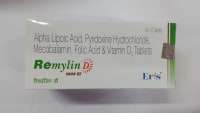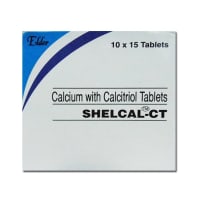USED FOR:
Pain relief
Muscle pain
Throat irritation
COMPOSITION:
Diclofenac (1.16% w/w)
Methyl Salicylate (10% w/w)
Menthol (5% w/w)
Therapeutic Uses:
ophthal
pain analgesics

No interaction found

WEIGH RISKS VS BENEFITS
Cremalgin Cream is unsafe to use during pregnancy.There is positive evidence of human fetal risk, but the benefits from use in pregnant women may be acceptable despite the risk, for example in life-threatening situations. Please consult your doctor.

No information is available on the use of Cremalgin Cream during lactation. Please consult your doctor.

Do not drive unless you are feeling well.Cremalgin Cream may cause headaches, blurred vision, dizziness or drowsiness in some patients. This may affect your ability to drive.

Cremalgin Cream is probably safe to use in patients with kidney disease. Limited data available suggests that dose adjustment of Cremalgin Cream may not be needed in these patients. Please consult your doctor.

Cremalgin Cream is probably safe to use in patients with liver disease. Limited data available suggests that dose adjustment of Cremalgin Cream may not be needed in these patients. Please consult your doctor.
Uses of Diclofenac
Diclofenac is used for pain reliefIt relieves pain in conditions like headache, mild migraine, muscle pain, dental pain, rheumatoid arthritis, ankylosing spondylitis, osteoarthritis, or painful menses.
How to use Diclofenac
This medicine is for external use only. Use it in the dose and duration as advised by your doctor. Check the label for directions before use. Clean and dry the affected area and apply the cream. Wash your hands after applying, unless hands are the affected area.
How Cremalgin Cream works
Diclofenac is a non-steroidal anti-inflammatory drug (NSAID). It works by suppressing the production of chemical messengers (prostaglandins) that cause inflammation (redness and swelling), fever and pain.
Common Abdominal pain, Constipation, Diarrhoea, Epigastric pain, Flatulence, Nausea, Vomiting, Indigestion.
Expert advice for Diclofenac
It should be taken with food or milk to avoid getting an upset stomach. It can cause serious complications like stomach bleeding and kidney problems if taken for a long time. Diclofenac can raise a risk of blood clots, heart attack, or a stroke. Inform your doctor if you are pregnant or planning to conceive or breastfeeding. Inform your doctor if you have ever been diagnosed with kidney or liver problems.
Q. Can Diclofenac be used along with warfarin?
No. Using Diclofenac together with warfarin can increase the risk of serious bleeding from the stomach (Higher than users of either drug alone). Inform your doctor before starting these medications.
Q. Is Diclofenac a painkiller?
Yes. Diclofenac is a pain killer. In fact, it belongs to the class of drugs called non-steroidal anti-inflammatory drugs (NSAIDs). It is commonly used for the treatment of pain in osteoarthritis, rheumatoid arthritis and spondylitis.
Q. Is Diclofenac a narcotic?
No, Diclofenac is not a narcotic. Narcotics are drugs with sleep inducing properties, usual derivatives of Opium like Heroin and Morphine.
Q. Can I use Diclofenac along with vitamins?
Yes, Diclofenac can be taken with vitamins. No drug-drug interactions or any harmful effects have been reported when they are used together.
Q. Can Diclofenac be used for the treatment of hepatitis?
No, Diclofenac is not approved for the treatment of hepatitis. Hepatitis is a condition where the liver is inflamed. Diclofenac can, in fact, cause harm to the liver as a side effect.
Q. Can Diclofenac be used after C-section?
Yes, Diclofenac is a pain killer. C-section is the short name for Cesarean Section which is an operative procedure to deliver the baby through the mother's abdomen and uterus. Diclofenac can be used to treat the pain that may occur after the operation.
Q. Can I take Diclofenac along with misoprostol?
Yes. It can be taken together. Misoprostol protects the stomach from irritating gastric effects of Diclofenac. The combination of medication is used to treat arthritis in patients at high risk of getting stomach/intestinal ulcers and complications from the ulcers (such as bleeding).
Q. Can I take Diclofenac while I am on thyroxine?
Yes, Diclofenac can be taken with thyroxine. No drug-drug interactions or any harmful effects have been reported when they are used together.
Q. Why Diclofenac should be stopped before surgery?
Since Diclofenac has been shown to have blood thinning effects, it can increase the risk of bleeding. Therefore, it is stopped before surgery to prevent excessive loss of blood.
Q. What are the contraindications for Diclofenac?
Diclofenac should not be used if there is an allergic reaction (hypersensitivity) to it, or other pain killers, active ulcer in the stomach, bleeding from the stomach, history of severe heart failure, liver failure, kidney failure and or heart attack.
Q. Can Diclofenac affect the chance of conceiving?
Yes. Diclofenac can sometime cause reversible infertility. Diclofenac by its mechanism of action, may delay or prevent rupture of ovarian follicles, which has been associated with reversible infertility in some women. Consult your doctor before starting this medication.
Q. Why does Diclofenac cause an ulcer?
Diclofenac can cause damage to the lining cells of the stomach by several mechanisms, including the irritant effect on the cells, breaking of the protective barrier properties of lining cells, suppression of prostaglandin production of the stomach, reduction of stomach mucosal blood flow and interference with the repair of superficial injury of the stomach lining.
Q. Why is Diclofenac contraindicated in asthma?
Some patients with asthma are hypersensitive to non-steroidal anti-inflammatory drugs (NSAID) like aspirin which can lead to acute attacks of asthma. Consult your doctor before starting this medication.
Q. Is Diclofenac good for back pain?
Yes, Diclofenac has been found to be effective to reduce back pain. Diclofenac is a pain killer that belongs to the NSAIDs (Non-Steroidal Anti-Inflammatory) class. Other NSAIDs have also been found to be useful in back pain eg. Ibuprofen and Naproxen.
Q. Can I use Diclofenac during my fever treatment?
Yes, Diclofenac can reduce fever. However, commonly used to reduce the pain, particularly that which is seen with Osteoarthritis, Rheumatoid Arthritis and Ankylosing spondylitis.
Q. Can I use Diclofenac to treat a sore throat?
Sore throat is mostly caused by bacteria so antibiotics are given to treat a sore throat whereas Diclofenac is a pain killer so it can be given in cases of throat pain associated with it but only under the prescription of a doctor.
Q. Can I use Diclofenac to treat urinary tract infections (UTI)?
Diclofenac can be used to treat the pain associated with urinary tract infection (UTI) but for complete treatment, a course of antibiotics will be required.
Q. Can Diclofenac cause sedation?
Diclofenac is not known to cause sedation. There have been rare, an isolated case report of sedation with the drug.
Q. Can I take Diclofenac for kidney stones?
Yes,Diclofenac can be used to relieve the pain due to kidney stones. However, there is also a risk of kidney damage with Diclofenac as its side effect. It is advised not to take Diclofenac for a prolonged time for this condition without adequate monitoring.
Q. Can I use Diclofenac for the treatment of arthritis?
Yes, Diclofenac is commonly used for the treatment of pain in osteoarthritis, rheumatoid arthritis, and spondylitis.It belongs to the class of drugs called non-steroidal anti-inflammatory drugs (NSAIDs). .
Q. Can I use Diclofenac with diuretics?
No, Diclofenac should not be used with diuretics. Diclofenac reduces the natriuretic effect of furosemide and thiazides diuretics in some patients. This response has been attributed to inhibition of renal prostaglandin synthesis.
Q. Can I use Diclofenac with mifepristone?
These drugs should not be used together as the effect of mifepristone may be lowered by Diclofenac. Mifepristone is used for medical abortion.
Q. Can I use Diclofenac with lithium?
No.These drugs should not be used together as Diclofenac increases the blood levels of lithium which may further increase the side effects.
Uses of Methyl Salicylate
Methyl Salicylate is used in muscle pain and rheumatic pain.
How to use Methyl Salicylate
This medicine is for external use only. Use it in the dose and duration as advised by your doctor. Check the label for directions before use. Clean and dry the affected area and apply the cream. Wash your hands after applying, unless hands are the affected area.
How Cremalgin Cream works
Methyl Salicylate is a non-steroidal anti-inflammatory drug (NSAID). It works by blocking the release of prostaglandin, that causes allergy symptoms and inflammation (swelling and redness).
Expert advice for Methyl Salicylate
It should not be taken by patients who are allergic to methyl salicylate or any of the ingredients of the topical cream/gel/lotion/ointment/spray.
Do not apply methyl salicylate to open wounds, or sunburned, windburned, dry, chapped, or otherwise irritated skin.
Wash your hands with soap and water immediately after applying methyl salicylate. If you have applied the medicine to your hands or fingers to treat pain in those areas, wait at least 30 minutes before washing your hands.
Do not apply on eyes, mouth, nose, genitals or rectum, and avoid touching these areas after applying medication to affected area and before washing your hands.
Do not cover treated skin with a bandage or heating pad, which can increase the burning sensation. You may cover the skin with clothing.
Do not apply this immediately after shaving or bathing.
Avoid getting this medication on dentures, contact lenses or any other thing that comes in contact with sensitive parts of the body.
Consult your doctor if your pain does not improve after using this medication for 7 days, or if your symptoms get worse or get better and then come back in a few days.
Q. Is methyl salicylate the same as aspirin or menthol?
Methyl salicylate is not the same as aspirin or menthol. Methyl salicylate belongs to the same class of medication like aspirin i.e. analgesics or painkiller
Q. How does Methyl Salicylate work?
Methyl Salicylate relieves pain by inhibiting formation of pain causing chemicals in the body
Q. Does it work as a blood thinner or kill bacteria?
It is not a blood thinner and does not kill bacteria
Q. Is Methyl Salicylate an active ingredient?
Methyl Salicylate is one of the active ingredients of some pain relief topical cream/ gel/ lotion/ ointment/ spray
Q. Is Methyl Salicylate safe?
Methyl Salicylate is safe when used for an indication and at a dose instructed by doctor. It has local side-effects like cold or burning sensation at the site of application.
Uses of Menthol
Menthol is used in the treatment of throat irritation.
How to use Menthol
This medicine is for external use only. Use it in the dose and duration as advised by your doctor. Check the label for directions before use. Clean and dry the affected area and apply the cream. Wash your hands after applying, unless hands are the affected area.
How Cremalgin Cream works
Menthol works by producing a mild anesthetic action causing numbness and a cooling sensation in the area of application.
Common No adverse reaction found.


 Cremalgin Cream
Cremalgin Cream  Bookmark
Bookmark





















